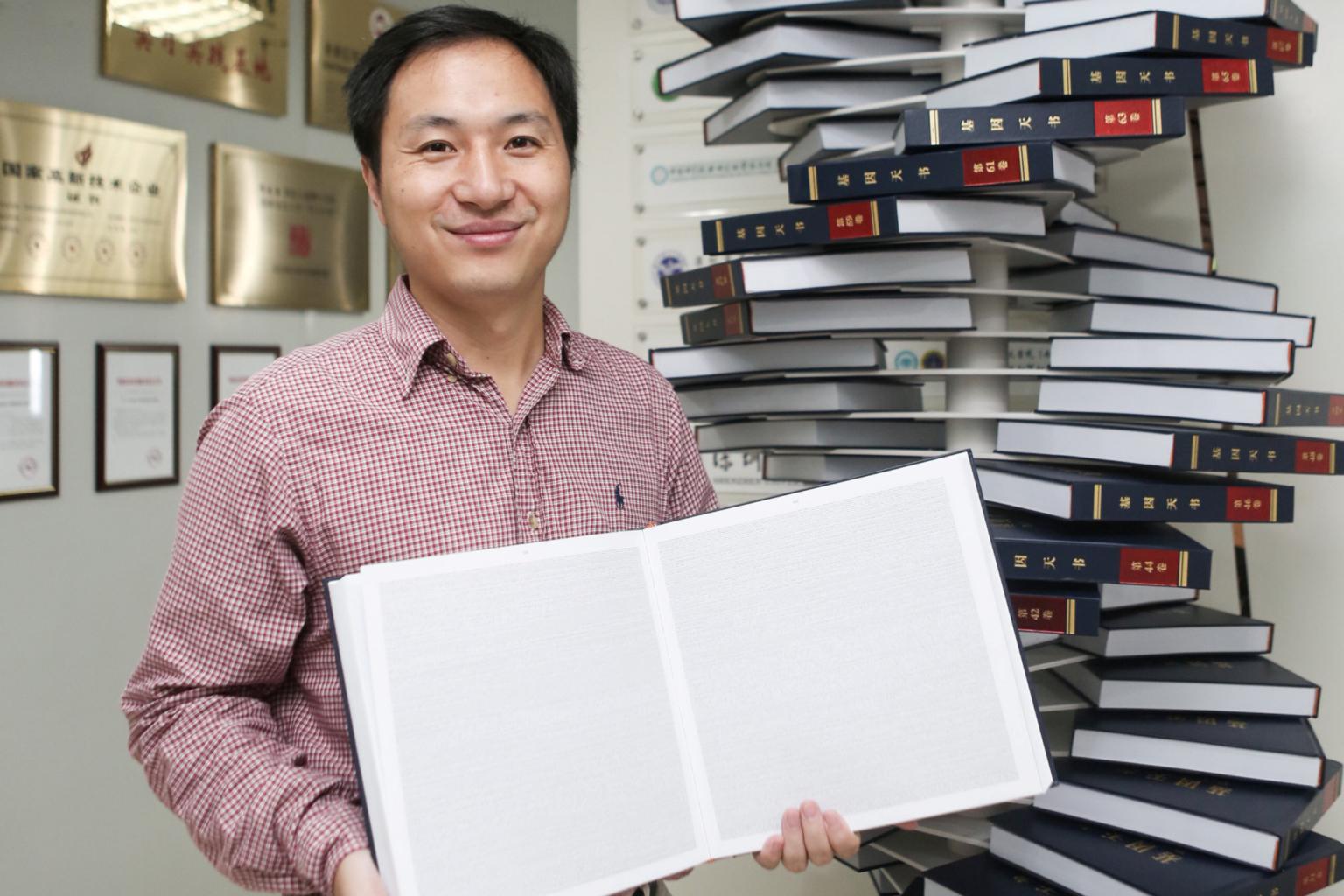Chinese fury at gene scientist grows as world waits for proof
Sign up now: Get insights on Asia's fast-moving developments

Dr He Jiankui said he will present his data at an international genetics conference in Hong Kong on Wednesday.
PHOTO: REUTERS
Follow topic:
SHANGHAI (BLOOMBERG) - Chinese condemnation of the researcher who said he altered the genes of twin baby girls has reached fever pitch, and a senior government official said he broke Chinese law, even as the global scientific community waited for data to assess the veracity of his claims.
Dr He Jiankui, the Shenzhen-based researcher, has said he will present his data at an international genetics conference in Hong Kong on Wednesday (Nov 28).
He shocked the world this week with claims that the infants were born recently after he altered the genes of the embryos to make them resistant to HIV.
His representatives have not made him available for comment and he did not respond to questions by e-mail.
The Chinese scientist's revelations have sparked allegations of fraud, three investigations in China and calls from prominent Chinese researchers for him to be punished.
Harmonicare Medical Holdings, which owns the hospital that the researcher said he got approval from for his work, said in a filing on Tuesday (Nov 27) that it believed signatures on an application to the hospital's medical ethics committee had been forged and that the committee never met to review Dr He's proposal.
The Shenzhen hospital has never participated in the clinical operation related to the gene-edited babies and the twins were not born at the facility, the company said.
SCIENCE AND ETHICS
State-run news agency Xinhua reported on Wednesday that the Chinese Union of Life Science Societies, an umbrella of 22 national-level associations, said that it strongly opposed research that violated the spirit of science and ethics, and that Dr He's case had "severely disturbed the order of scientific research and seriously damaged China's international reputation in the life science field".
Earlier, the Genetics Society of China, the Chinese Society for Cell Biology and a group of 122 scientists issued separate statements condemning Dr He's actions and called for the Chinese government to act.
He is also under investigation by his university, the Southern University of Science and Technology, and the hospital where he supposedly had ethical approval for the experiment.
Both bodies said they had no knowledge of the controversial undertaking.
On Tuesday afternoon, in the clearest sign yet that the Chinese government viewed Dr He's project as illegal, Deputy Minister of Science and Technology Xu Nanping said in a press briefing that China had outlawed the use of gene editing for fertility purposes in 2003.
But Chinese law does not mention the use of Crispr, the revolutionary gene-editing technique that Dr He used to alter the twins' genetic code.
By contrast, the US and many other countries have strictly restricted Crispr's use.

The most recent Chinese government pronouncement, a 2017 document from the Science and Technology Ministry, said only that gene-editing research involves great risks and urged rigorous supervision.
In his Tuesday briefing, deputy minister Xu hinted at the internal debates the Chinese government has over how it should regulate burgeoning research areas like biotechnology and artificial intelligence.
China wants to be a leader in the defining technologies of the 21st century, but lax regulation risks cases like Dr He's.
"We are conscious that it's a double-edged sword. Sometime we feel quite anxious," said Dr Xu.
"To be honest, on this question, we still haven't completely straightened out our thinking. We know there will be some negatives but we also don't dare - because there will be negatives - to avoid technologies or advancements."

